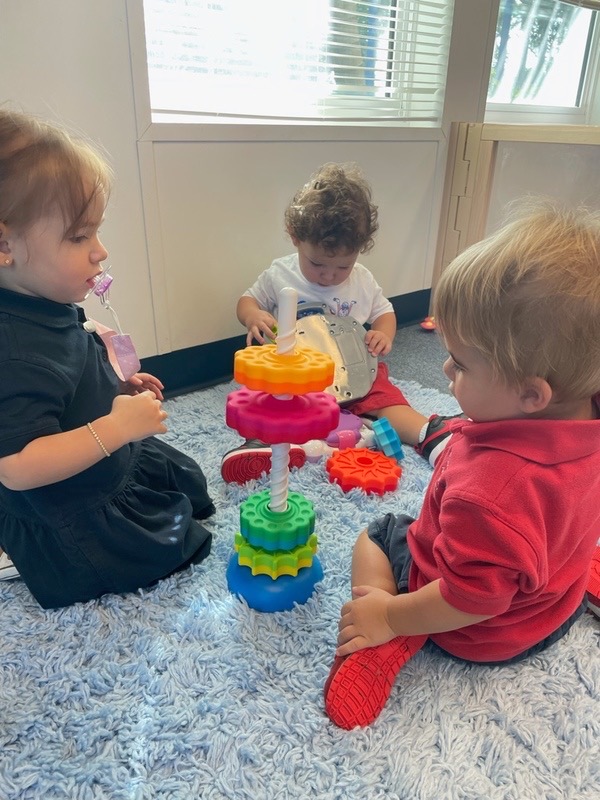Why Daycare Near Me By State Doesn't Work
작성자 정보
- Eartha 작성
- 작성일
본문
 Introduction
IntroductionIn the current fast-paced world, the original 9-5 time-table no longer suits the requirements of many people. With increased moms and dads working irregular hours, change work, or overnight shifts, the demand for 24-hour daycare solutions is on the rise. This short article explore the theoretical ramifications of 24-hour daycare, talking about the potential benefits and challenges connected with providing around-the-clock take care of kiddies.
Some great benefits of 24-Hour Daycare
Among major great things about 24-hour daycare is increased flexibility for working moms and dads. With all the option to drop off and get their children anytime of the day or night, moms and dads can better balance their particular work and family duties. This versatility are specifically good for parents who work non-traditional hours or over night shifts, as it permits all of them locate childcare that aligns making use of their working arrangements.
Also, 24-hour daycare often helps support parents who will be following advanced schooling or education programs that need them to attend courses or work during non-traditional hours. By providing childcare solutions after all hours, parents can go after their educational targets without having to bother about finding take care of their children during class or research time.
Another advantage of 24-hour daycare may be the possibility of increased socialization and mastering options for kids. When you are in a daycare setting for extended periods of time, kiddies do have more possibilities to communicate with their colleagues, engage in structured activities, and learn from skilled caregivers. This prolonged amount of time in daycare can help kiddies develop social abilities, build connections, and enhance their cognitive and mental development.
In addition, 24-hour daycare provides a secure and protected environment for children during occasions when parents might not be available to look after them. For parents who work overnight changes or have unpredictable schedules, knowing that their children come in a secure and nurturing environment can provide satisfaction and alleviate a few of the anxiety of balancing work and parenting responsibilities.
The Challenges of 24-Hour Daycare
While there are lots of prospective advantages to 24-hour daycare, there are also several challenges that must be considered. Among the main difficulties may be the prospective impact on kids sleep schedules and total well being. Studies have shown that disrupted rest habits can have adverse effects on children's cognitive development, behavior, and general health. Offering childcare services anyway hours will make challenging for the kids to ascertain consistent rest routines, which may have long-term ramifications for their well being.
Also, keeping top-quality attention and direction during overnight hours can be challenging. Caregivers who work overnight shifts may go through fatigue and reduced attentiveness, that could impact their ability to deliver equivalent level of care and supervision as they would during daytime hours. Making sure caregivers are well-rested, supported, and taught to provide quality care during overnight hours is important to mitigating these difficulties.
Another challenge of 24-hour daycare is the potential for increased costs for households. Offering childcare solutions night and day calls for extra staffing, resources, and working expenditures, which could end up in higher charges for moms and dads. For households currently struggling to cover childcare, the added expenditure of 24-hour attention are prohibitive and restrict their particular access to these services.
In addition, the option of 24-hour daycare may perpetuate the hope that moms and dads must certanly be open to work at all hours, ultimately causing a further blurring of boundaries between work and household life. This continual supply and force to your workplace around-the-clock can play a role in increased stress, burnout, and work-life instability for moms and dads, that may have negative effects to their wellbeing and overall quality of life.
Conclusion
In conclusion, 24-hour daycare provides a range of prospective benefits for working parents, including increased versatility, socialization opportunities for kids, and a safe and protected environment for kids during non-traditional hours. But there are additionally a few challenges involving supplying around-the-clock treatment, including prospective effects on kids' rest schedules, the need for top-quality attention and Daycares popular listings supervision during overnight hours, increased costs for people, as well as the possibility further blurring of boundaries between work and household life.
Because the need for 24-hour daycare solutions is growing, it is crucial for policymakers, childcare providers, and parents to carefully consider the advantages and challenges associated with this model of attention. By addressing these challenges and dealing collaboratively to ensure that young ones receive top-quality treatment and support anyway hours, we can develop a childcare system that fits the diverse needs of working households and aids the healthy development of children.
관련자료
-
이전
-
다음
댓글 0개
등록된 댓글이 없습니다.







